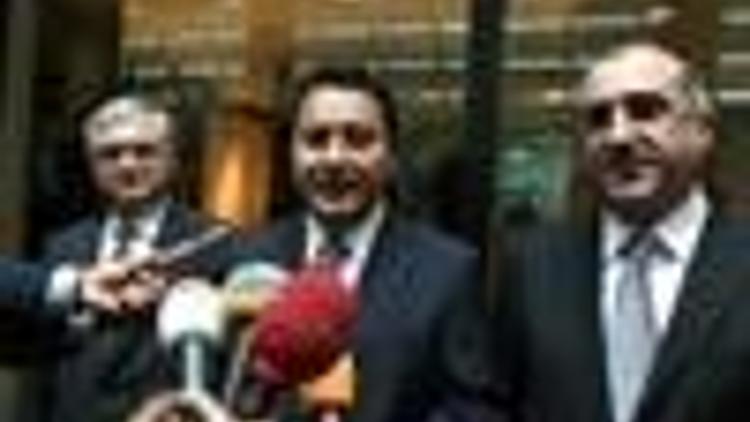Turkish FM says Armenian counterpart expected to visit Turkey
Güncelleme Tarihi:

Armenian Foreign Minister Eduard Nalbandian is expected to visit Turkey later this year, Turkish Foreign Minister Ali Babacan said Wednesday. (UPDATED)
"I will pay a visit to Azerbaijan in the coming days, and a visit by Foreign Minister Eduard Nalbandian of Armenia to Turkey is in question. The diplomacy traffic in the Caucasus will speed up by the end of the year," Babacan told a joint press conference with his Algerian counterpart Mourad Medelci in Ankara.
Babacan added he expected that Turkish President Abdullah Gul and his Armenian counterpart Serzh Sargsyan would meet again soon.
There is no diplomatic relations between Armenia and Turkey over Armenia's aggression toward Azerbaijan. But a warmer period began between Turkey and Armenia after Gul paid a landmark visit to Armenia early September.
"There has been intense diplomacy traffic between the two countries. On the other hand, a meeting took place in Moscow, Russia in an effort to find a solution to the dispute between Azerbaijan and Armenia. We supported the meeting. We also expect Russia to make a significant contribution to the normalization of Azerbaijan-Armenia relations," he said.
Armenian and Azerbaijani leaders met in Moscow earlier this month and signed a declaration calling for a "peaceful resolution" to their dispute over the province of Nagorno-Karabakh on the basis of "binding international guarantees", taking a step further towards resolution of the conflict.
TANGIBLE RESULTS POSSIBLE
Babacan added all parties are willing to maintain the process, referring to the first tripartite meeting of Turkish, Azerbaijani and Armenian foreign ministers held in New York �
"But we need to determine our agenda carefully to come to tangible results," he was quoted by Anatolian Agency as saying.
The conflict between Azerbaijan and Armenia began in 1988 on Armenian territorial claims over Azerbaijan.
Since 1992, Armenian Armed Forces have occupied 20 percent of Azerbaijan including the Nagorno-Karabakh region and its seven surrounding districts, displacing 10 percent of the Azeri population in the series of bloody clashes both between and within the two neighboring countries.
In 1994, Azerbaijan and Armenia signed a ceasefire agreement at which time the active hostilities ended. The co-chairs of the OSCE Minsk Group are currently holding peaceful negotiations. Nearly 30,000 were killed in the 1990s war over the enclave and soldiers on both sides continue to exchange sporadic fire, claiming lives.
"The most important thing is to secure a lasting peace and stability in the Caucasus. Therefore, a cooperation and stability platform including Russia, Turkey, Georgia, Azerbaijan and Armenia is of great importance," Babacan added.
Turkey proposed the establishment of a Caucasian Cooperation and Stability Platform after a brief war broke out in August between Russia and Georgia.

